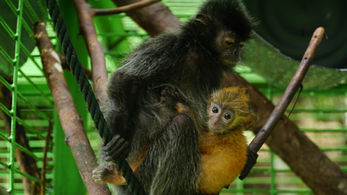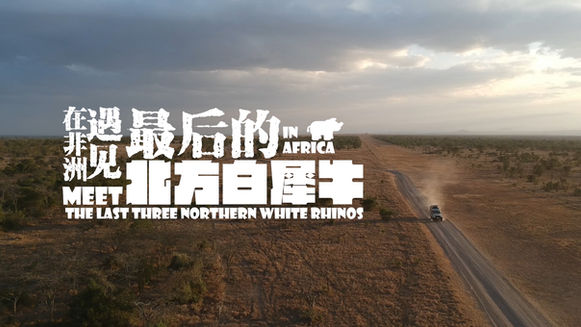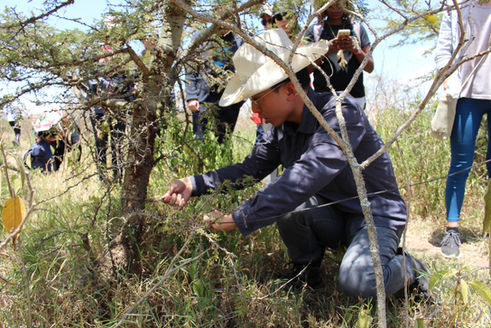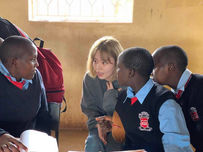
GLOBAL PROJECTS
WOMEN & GIRLS
“Table banking" Women's Entrepreneurship Program: Empowering Kiberan Women
1.
Time: July 2023 - Ongoing
Location: Kibera, Kenya
Partners: Women, Youth & Children Development Organization (WYCDO)
Intro: In the heart of Kenya's sprawling Kibera slums, a relentless cycle of poverty has long plagued its residents, especially women. With soaring unemployment rates, stark income disparities, and limited access to education and healthcare, the challenges for women in Kibera are immense.
Impact: Our collaboration with WYCDO to launch The Liberty Station Fund holds the promise of empowering women in Kibera, Kenya, by providing them with financial resources, entrepreneurial opportunities, and the means to overcome life's challenges. It is a transformative step towards a brighter future for these women and their community.
-
The Liberty Station Fund: China House is poised to partner with WYCDO to establish 'The Liberty Station Fund.' With a target fund size of at least $2,000 USD, this initiative is designed to operate on principles similar to Table Banking, featuring a fixed interest rate of 10% on loans.
-
Financial Resource Pool: This fund will serve as a substantial financial resource pool for women in Kibera. It equips them with the means to effectively tackle unexpected emergencies and adversities that may arise in their lives. By providing a safety net, it empowers women to navigate challenges with greater resilience.
-
Entrepreneurial Catalyst: Beyond safeguarding against financial setbacks, The Liberty Station Fund is a catalyst for entrepreneurship. It encourages impoverished women to embark on entrepreneurial journeys, offering the promise of higher returns. By providing startup capital, it unlocks opportunities for these women to venture into income-generating activities.
-
Empowering Change: The potential success of this initiative signifies a significant turning point for women in Kibera. It not only elevates their financial stability but also empowers them to shape their own destinies, breaking free from the shackles of poverty and inequality.
 |  |  |  |
|---|---|---|---|
 |  |
Empowering Kenyan Women: Bridging Opportunities
with the Chinese Market
2.
Time: July 2017 - Ongoing
Location: Kasigau and other areas in Kenya
Partners: Euphrasia Women Center, etc.
Intro: Since July 2017, in collaboration with local Kenyan NGOs such as the Euphrasia Women's Center and others, we have undertaken a mission to alleviate poverty and unemployment among women in Africa. Our primary focus has been to empower these women by enabling them to sell their products to the Chinese market.
Impact: Our ongoing collaboration with Kenyan NGOs and our commitment to helping women in Africa access the Chinese market have resulted in tangible and significant impacts, including increased sales, economic empowerment, skill development, and long-term sustainability for these women.
-
Market Access: We have successfully led a group of students in partnership with local NGOs to organize a series of business marketing campaigns targeting the Chinese market. Through these campaigns, we facilitated access for Kenyan women to a vast consumer base, bridging the gap between their products and Chinese consumers.
-
Sales Revenue: These efforts have resulted in substantial sales revenue, with over $5,000 USD generated through these campaigns. This income has had a direct and positive impact on the economic well-being of the women involved, helping them address poverty and financial challenges.
-
Economic Empowerment: By facilitating access to the Chinese market, we have contributed to the economic empowerment of women in Kasigau and other areas in Kenya. This empowerment goes beyond mere income generation; it empowers women to build sustainable livelihoods and improve their overall quality of life.
-
Skill Development: Our initiatives have also provided opportunities for women to develop and enhance their entrepreneurial and marketing skills. These newly acquired skills not only help them in selling products to China but can also be applied to various other business endeavors.
-
Long-term Sustainability: By creating pathways for women to access the Chinese market, we are laying the foundation for long-term economic sustainability. This helps in breaking the cycle of poverty and provides a more promising future for these women and their communities.
 |  |  |  |
|---|---|---|---|
 |  |
Ending Period Poverty in Kenya:
A Commitment to Dignity
3.
Time: September 2019 - Ongoing
Location: Kenya
Partners: Euphrasia Women Center, etc.
Intro: Since September 2019, we have been dedicated to raising funds and awareness to address the pressing issue of "period poverty" in Kenya, which affects women and children enduring long-term poverty.
Impact: Our ongoing commitment to addressing period poverty in Kenya, in partnership with organizations like RefuSHE, has yielded tangible results. By raising funds, providing sanitary towels, and supporting those affected, we are making significant strides in bringing an end to this form of hardship and empowering women and children to live with dignity and confidence.
-
Fundraising Success: Our students, fueled by compassion, successfully raised $2,000 USD to address period poverty in Kenya. This financial support has been instrumental in providing much-needed relief to those affected.
-
Sanitary Towel Donations: A significant portion of the funds was directed towards the purchase of sanitary towels, ensuring access to menstrual hygiene products. These donations play a crucial role in restoring dignity and comfort to women and adolescents facing period poverty.
-
Supporting RefuSHE: We contributed to the commendable efforts of RefuSHE, an NGO dedicated to aiding refugee women and children in Kenya. Our donations have bolstered their initiatives, offering relief to a particularly vulnerable segment of the population.
-
Direct Community Impact: Beyond our partnership with RefuSHE, we directly reached out to women and adolescents within Kenyan communities, ensuring that those in need receive the support they require.
-
Beneficiary Reach: Through these collective actions, we have positively impacted the lives of more than 1,000 people. This signifies a substantial step toward alleviating the challenges associated with period poverty.
 |  |  |  |
|---|---|---|---|
 |  |
Empowering Maasai Girls: Combating Female Genital Mutilation (FGM) in Kenya
4.
Time: December 2015 - Ongoing
Location: Oloitoktok Town, Eastern Kenya
Partners: Maasai Girls Life Time Dream Foundation, Divinity
Intro: About 78% of women aged 15 to 49 have undergone Female Genital Mutilation (FGM) in Maasai tribe in Kenya. Because many of FGM operations are privately administered the sanitation is often unqualified, women are vulnerable to wound infection, massive bleeding, and HIV infection after surgery.
Impact: Our ongoing partnership with local NGOs and our pioneering role in combating FGM have yielded significant impact. We have provided support, education, and hope to vulnerable girls, ultimately contributing to the eradication of FGM and the empowerment of Maasai girls in Oloitoktok Town, Eastern Kenya.
-
Pioneering Anti-FGM Efforts: We are proud to be the first Chinese civil society organization actively engaged in the fight against FGM in Africa. This groundbreaking involvement signifies our dedication to addressing this critical issue.
-
Rescuing and Supporting Vulnerable Girls: Collaborating with MAGRIAF, we have provided essential support to the Maasai Girls Life Time Dream Foundation, a local NGO committed to rescuing girls threatened by FGM. Through our efforts, we have been able to extend a lifeline to these young girls, offering them refuge from the practice and a chance for a brighter future.
-
Financial Support: Our commitment goes beyond words. We have donated over $15,000 USD to these centers, demonstrating our tangible support for their initiatives. This financial aid has been instrumental in covering living expenses, tuition fees, and professional development opportunities for the girls we are helping.
-
China House providing long-term financial support to 5 girls.
-
Empowering Through Education: Education is a powerful tool for change. We donated 21 laptops to Divinity, enabling them to establish a computer lab. This lab not only facilitates online learning for girls but also serves as a community resource for computer skills training. It empowers girls and community members with valuable skills for the future.
 |  |  |  |
|---|---|---|---|
 |
Xinjiang Women's Empowerment Initiative
5.
Time: December 2020 - Ongoing
Location: Kashgar and surrounding cities, Xinjiang, China
Partners: ShenZhen Municipal Pair Support Xinjiang (Kashgar) Soical Work Station
Intro: In Xinjiang, numerous minority women find themselves in need of support and empowerment, particularly concerning economic opportunities, gender equality, and the prevention of domestic violence. These women face unique challenges that require targeted assistance to enhance their quality of life.
Impact: To address these pressing issues and empower minority women in Xinjiang, we have partnered with local organizations on a transformative initiative. This initiative centers around the provision of donkeys to assist women in generating income and improving their family's socio-economic status. Additionally, we are actively seeking volunteers to assist working mothers in factories by caring for their children. Through these collaborative efforts, we aim to uplift the lives of minority women in Xinjiang, fostering economic independence and gender equality within the region.
-
Economic Empowerment through Animal Husbandry: In Beshkranmu Township, Kashgar, we have been instrumental in supporting local ethnic minority women from disadvantaged backgrounds. We have provided them with the means to develop animal husbandry by distributing high-quality local breeds of Jiangyue donkeys and Dolan sheep. These animals not only serve as a source of income when sold, but we have also implemented a sustainable approach. The first offspring born from the distributed livestock is passed on to another needy family, creating a cycle of self-help. To ensure the well-being of the animals and enhance the women's capacity to care for them, our partnered local charity organizations conduct regular visits and provide training. To date, our program has successfully donated 23 donkeys, 30 sheep, and a breeding ram to local women in need.
-
Childcare and Education Support: In Shenzhen Industrial Park, Kashgar, we have recruited and trained dedicated volunteers who have worked alongside local staff to provide essential childcare services for a cumulative total of over 240 hours. Our volunteers engage children in creative activities such as drawing, singing children's songs, and narrating picture stories, broadening their horizons and nurturing their growth. Additionally, recognizing the educational needs of middle and high school students who lacked access to cram schools and had challenges with English, we initiated a Learning Support Community in September 2022. This community connects these students with volunteers from international schools in Shenzhen and Xi'an who generously offer their time to address study-related queries and provide academic assistance.
-
Humanitarian Aid: We have extended crucial financial assistance to those facing dire circumstances. Notably, we provided RMB 17,000 in support to a Uyghur woman suffering from cancer, who lacked a minimum income. This assistance aimed to alleviate her financial burden during a challenging time. Furthermore, we allocated RMB 2,050 for the renovation of a family's bathroom, significantly enhancing their living conditions and overall quality of life.
 |  |  |  |
|---|---|---|---|
 |  |  |
Transforming Girls and
Youth in Kashgar
6.
Time: December 2020 - Ongoing
Location: Kashgar and surrounding cities, Xinjiang, China
Partners: ShenZhen Municipal Pair Support Xinjiang (Kashgar) Soical Work Station
Intro: In Xinjiang, minority youth and girls encounter a unique set of challenges and opportunities that encompass various aspects of their lives, including personal development, vocational skills, and comprehensive sexual education.
Impact: To empower the minority youth and girls in Xinjiang and provide them with a valuable education, we have launched a transformative program. This initiative is designed to enhance their economic prospects and promote gender equality. Through close collaboration with local partners, our goal is to create pathways for these young individuals to achieve self-reliance and social progress. By implementing innovative projects and targeted educational initiatives, we are committed to bringing about positive change and improving the prospects of Xinjiang's minority youth and girls.
-
Digital Empowerment Through Computer Donations: Our computer fundraising campaign yielded 49 computers, which were distributed to various beneficiaries. We donated 29 computers to college students in Beshkranmu Township, equipping them with essential tools for their studies. Additionally, 15 computers were provided to the 27th Primary School in Kashgar, enabling local teachers to incorporate technology into their teaching methods. We further extended support by donating 3 computers to village committees across 18 villages in Beshkranmu Township, facilitating the daily use of computers by villagers and staff. Finally, two computers were contributed to local nonprofit organizations in Kashgar, aiding frontline social workers in their crucial work.
-
Adolescent Physical Health Education: Beginning in 2023, we partnered with social workers to conduct adolescent health education and sexual abuse prevention activities in rural areas of Kashgar, primarily for girls from single-parent, disadvantaged, or left-behind families. We successfully organized two sessions prior to this project, with each session accommodating 30 girls in grades 4-6, totaling 60 participants. During each session, we conducted five lessons covering topics such as physiological changes during puberty, hygiene habits, appropriate adolescent behavior, and sexual abuse prevention. At the conclusion of each event, we distributed sanitary napkins (daily, nighttime, and pads), children's underwear, panties, sulfur soap, regular soap, and student-designed menstrual record books to the girls.
Simultaneously, we launched the "The Power of a Sanitary Napkin" campaign in collaboration with the sanitary napkin brand "Besshut." By September 2023, we had received over 1,700 packs of hygienic napkins donated by BESHUTE and its users, with the first batch of 812 packs going to 231 sixth-grade girls at the 27th Primary School in Kashgar. The remaining products will be distributed in conjunction with spring education activities.
-
Career Development Workshops and Educational Support: Our team conducted five "career development workshops" for young individuals in two townships within Kashgar. These workshops played a crucial role in assisting dozens of Uyghur and middle school students with career planning. Moreover, we provided support to four college students, enabling them to participate in a two-month "self-awareness" campaign designed to help them discover their full potential.
-
Collaboration with Charity Organizations: We collaborated with a charitable organization to support two ethnic minority college students in attending the "Northwest College Students Creativity Summit” in Yinchuan.
-
Additionally, we supported the tuition fees of three university students from disadvantaged families, totaling RMB 15,582 in financial assistance.
-
Medical and Financial Assistance: Our students raised RMB 50,000 for a Uyghur teenager requiring surgery for a tumor and RMB 11,800 for the rehabilitation of a 10-year-old boy with cerebral palsy.
 |  |  |  |
|---|---|---|---|
 |  |  |  |
 |  |
Empowering Women Entrepreneurs:
A Collaborative Journey with Grameen China
7.
Time: October 2021 - Ongoing
Location: Ankang and other places in China
Partners: Grameen China
Intro: In Xinjiang, minority youth and girls encounter a unique set of challenges and opportunities that encompass various aspects of their lives, including personal development, vocational skills, and comprehensive sexual education.
Impact: Our Team and Grameen China collaboratively initiated this project. Their approach involves conducting interviews with female members of Grameen China to develop logical models for predicting the project's impact and crafting business investment proposals. The primary objective of this program is to empower women entrepreneurs through comprehensive business support initiatives.
-
Between October 2021 and August 2023, a total of 10 Grameen China members received invaluable assistance from the team. These members were engaged in diverse business ventures, including cross-border e-commerce, health and wellness centers, food stalls, pet rabbit farming, and wine sales.
-
The team played a pivotal role by providing targeted funding, guidance, and advice on various aspects of business operations. They assisted with online promotion strategies, platform development, and even ensured that the children of these members had access to suitable educational resources.
-
Recognizing the need in Ankang, Shaanxi Province, in 2023, it came to our attention that numerous Grameen members aspired to showcase their products and services through online platforms but lacked the necessary skills to do so. To address this gap, our team proactively created a series of tutorials. These tutorials serve as a valuable resource, supporting local women entrepreneurs in their efforts to expand their businesses effectively in the digital realm.
 |  |  |  |
|---|---|---|---|
 |  |  |  |
 |  |
1.
Agent C
Project
Time: August 2014 - present
Location: Uganda, Kenya, Tanzania, Malawi, Namibia, Mozambique, South Africa, Vietnam, Thailand, Mexico, Bolivia, Suriname
Partners: IUCN, TRAFFIC, WWF, IFAW, Humane Society International, The Eagle Network, Earth League, Wildlife Justice Commission
Intro: For a long time, Chinese people were seen as villains in the global wildlife trade, creating demand for ivory, rhino horn, jaguar teeth, etc. Many NGOs want to understand more about the wildlife trade regarding the Chinese stakeholders, but they find it difficult since the language and culture barriers. Such difficulty creates misunderstandings about the trade, hindering people from fighting it.
Impact: In 2014, we formed a small Chinese investigation team to fight the global illegal wildlife trade, partnering with conservation NGOs worldwide. Utilizing the information we obtain, we also work with partners and design communication projects to engage related stakeholders against illegal wildlife trade. This is the first Chinese investigation team focusing on global illegal wildlife trade investigation.
2.
Indonesian Orangutan Conservation
Time: August 2017 - present
Location: East Kalimantan, Indonesia
Partners: COP (Centre for Orangutan Protection), CAN Borneo (Conversation Action Network Borneo)
Intro: In Indonesia, orangutans and other wildlife have lost their homes and lives due to deforestation caused by oil palm plantations, mining, and logging.
Impact: To conserve orangutans, we are working with CAN Borneo, a local NGO, to establish the first wildlife rescue and rehabilitation center in Indonesia.
The center will provide rescue, medical care, and rewilding training for homeless wildlife and help them return to their habitat. Meanwhile, we are working to protect natural habitats of wildlife and promote sustainable economic development in local communities.
-
BASE CAN, established in 2020 by China House and CAN Borneo is the first wildlife sanctuary in Southeast Asia to be partially supported by a Chinese civil society organization.
-
China House raised more than 15000 USD for the rescue center.
-
We funded a nursery that is now cultivating 85,000 seedlings which are expected to restore 100 hectares of forest habitat for orangutans.
-
We built a Chinese website for CAN, to help CAN engage with Chinese supporters.
-
Through these initiatives, Sun bears, gibbons, pangolins and so on have also been rescued.
3.
Ol Pejeta Wildlife Conservation
Project
Time: June 2018 - present
Location: Conservancies in Eastern and Northern Kenya
Partner: Ol Pejeta Conservancy
Intro: In Africa, wildlife is under severe threats due to poaching, smuggling, illegal trade, human-wildlife conflicts, etc. Ol Pejeta Conservancy has the last two Northern White Rhinos globally and the Sweetwaters Chimpanzee Sanctuary. The Conservancy is one of the only two nature reserves in Africa on the International Union for Conservation of Nature (IUCN) Green List.
Impact: We worked with Ol Pejeta Conservancy to enhance local wildlife protection, including improving and donating Lion Lights, investing in beehives, contributing camera traps, filming documentaries, conducting international business marketing, and raising public awareness.
-
Our students improved solar-powered Lion Lights invented by a local Kenyan. An improved Lion Light costs only one-third of its original price. Upon their return, the students led a fundraising campaign in China, commissioned a Chinese manufacturer for light production, and donated 620 Lion Lights to the Conservancy. The Lion Lights have been outstandingly effective in deterring wildlife from attacking farms, lessening the economic burdens and protecting the local wildlife from retaliation by villagers who would have suffered in the long-term human-wildlife conflict. Our work has been appreciated by the community department of the Ol Pejeta Conservancy.
-
To protect the last two Northern White Rhinos and other wildlife, we initiated student-led fundraising campaigns in China. And they donated six monitoring camera worth 1500 USD, to the Ol Pejeta Conservancy.
-
We produced the first Chinese student-made Northern White Rhino documentary, Meet the Last Three Northern White Rhinos in Africa. These students designed a Chinese brochure for Ol Pejeta Conservancy, impacting thousands of Chinese visitors.
-
We partnered with Ol Pejeta Conservancy to host a live broadcast on Sohu, which gained 230,000 likes, was streamed on Sohu’s homepage, and was reposted by Sohu's CEO.
-
Our students created a wildlife conservation charity brand, Animore+, and conducted a Northern White Rhino-themed offline concert, “Rhino’s Top Secret”, which attracted more than 60 participants. The event indirectly raised the awareness of wildlife conservation among students.
4.
Kenyan Anti - Poaching Patrol Project
Time: July 2014 - present
Location: Various locations in Kenya
Partner: African Network for Animal Welfare (ANAW)
Intro: In Africa, poachers hide snares in the bushes, grass, canopy, or around the tree trunks. When animals roam by, they are likely to be caught by these “traps”. As they try to break free from fright, the snares clutch on tighter, and eventually, many animals die of infected wounds. In Kenya, nearly 100 lions die every year from the traps. Zebras, antelopes, African buffaloes, giraffes, and other animals are also common victims.
These snares are related to the Bushmeat trade, which refers to the trade of hunted wildlife. Poachers mix wildlife meat with livestock meat to make money. According to a report by African Network for Animal Welfare, a local wildlife conservation organization, 40% of meat on the market in Nairobi, comes from Bushmeat.
Impact: Since 2014, We have been working with ANAW to recruit volunteers to work at natural reserves around Nairobi to clear the snares that poachers have placed and to rescue wildlife injured by the snares. Currently 1000+ Chinese and Kenyan Volunteers participate in 50+ Patrols and snare-cutting tours, and have been able to remove 5000+ Snares.
In May 2021, our students organized online fund-raising event and raised around 2500 USD . The money will be used to subsidize anti-poaching workers and purchase patrol tools and medical supplies needed to rescue wildlife.
5.
Anti - FGM
Project
in Kenya
Time: December 2015 - present
Location: Oloitoktok Town, Eastern Kenya
Partner: Maasai Girls Life Time Dream Foundation, Divinity
Intro: About 78% of women aged 15 to 49 have undergone Female Genital Mutilation (FGM) in Maasai tribe in Kenya. Because many of FGM operations are privately administered the sanitation is often unqualified, women are vulnerable to wound infection, massive bleeding, and HIV infection after surgery.
Impact: We partnered with two local NGOs ‒ MAGRIAF and Divinity--to take in girls threatened by FGM and provide them with living expenses, tuition fees, and professional development opportunities.
-
We are the first Chinese civil society organization involved in anti-FGM in Africa. We partnered with MAGRIAF and funded the Maasai Girls Life Time Dream Foundation- a local NGO, which supports girls rescued from FGM.
-
We donated over 15000 USD to the centers, and has been currently supporting for 5 girls.
-
We donated 21 laptops for Divinity to build a computer lab, helping girls and community members with online learning opportunities. In the future, the computer lab will serve as a computer skills training center for the local community.































